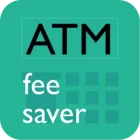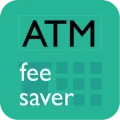Not sure if I should carry coins for public transport in Nigeria or if card payments are common. Advice?
I underestimated how cash-dependent Nigeria still is. In Abuja, I tried to pay a keke driver with ₦500 and he flatly refused - said he had no change. I had to run into a pharmacy to break the bill. ATMs at First Bank in Wuse often ran out of cash on weekends, and queues were insane. Even the BRT Cowry system in Lagos required topping up with naira. No way around it - carry plenty of small bills or risk being stuck.
In Lagos, I loved the Cowry Card system - so much smoother than fumbling with cash on crowded buses. I topped it up at a Zenith Bank booth near Mile 12 station and just tapped my way through the week. For danfos and kekes, small naira bills were enough, but it felt manageable once I got used to it. I also found ATMs around Victoria Island to be reliable. Nigeria’s public transport may look chaotic, but once you have change and a Cowry Card, it works surprisingly well.
I was staying in Surulere, Lagos, and used danfo buses daily. Each ride cost ₦200-₦300, paid directly to the conductor in cash. On the BRT from Oshodi to CMS, I had to buy a Cowry Card at the terminal and load it using cash at the First Bank kiosk. ATMs at GTBank on Allen Avenue worked fine for withdrawals, but often dispensed big bills that drivers hated. I usually stopped at Shoprite to break ₦1000 notes before catching a bus. Cash is definitely essential.
Public transport in Nigeria is almost entirely cash-based. Danfo buses in Lagos, keke (tricycles), and okadas (motorbikes) only take naira in cash. The newer BRT buses on the Ikorodu-TBS corridor accept the Cowry Card, which you can top up at terminals using cash or bank transfer. ATMs from GTBank, Zenith Bank, and First Bank are widespread, but queues can be long and machines sometimes run out of cash. If you’re traveling outside Lagos, carry enough naira notes - especially smaller denominations - as drivers rarely have change.


